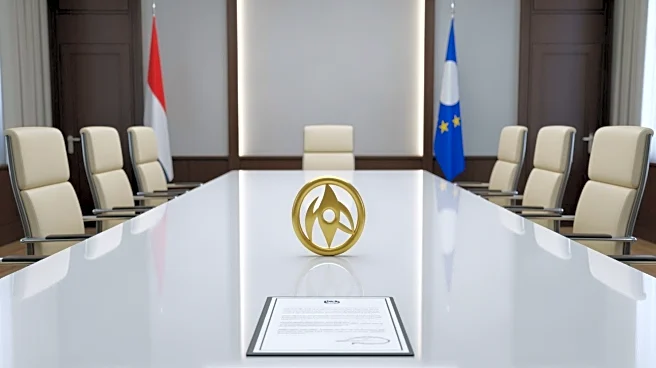What's Happening?
Democratic victories in key statewide elections have bolstered the party's determination to continue the government shutdown, complicating bipartisan efforts to resolve the crisis. Senate Democrats are demanding that President Trump engage in negotiations
over health care subsidies as a condition for reopening the government. This stance follows President Trump's acknowledgment that the prolonged federal closure negatively impacted his party in the recent elections. Despite some centrist Democrats previously indicating a willingness to compromise, the shutdown has led to significant disruptions, including the furlough of federal workers and interruptions in public services.
Why It's Important?
The ongoing government shutdown has significant implications for U.S. politics and society. The Democratic Party's strengthened resolve following electoral victories suggests a potential shift in the balance of power, affecting future negotiations and policy decisions. The shutdown's impact on federal employees and public services highlights the broader societal and economic consequences, with potential long-term effects on public trust in government. The standoff also underscores the deepening partisan divide, which could influence upcoming legislative agendas and electoral strategies.
What's Next?
As the shutdown continues, pressure is mounting on both parties to reach a resolution. The Democratic Party's firm stance may lead to intensified negotiations, with potential concessions on health care subsidies. Meanwhile, public dissatisfaction with the shutdown's effects could drive political leaders to seek a compromise. The outcome of these negotiations will likely shape future legislative priorities and influence the political landscape ahead of upcoming elections.

















